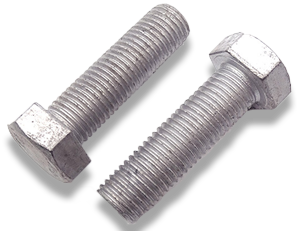

stud fastener
Nov . 11, 2024 12:53 Back to list
stud fastener
Understanding Stud Fasteners A Comprehensive Overview
When it comes to fastening solutions in various industries, stud fasteners play a pivotal role. These essential components, though often underestimated, are critical in a myriad of applications ranging from construction to automotive and aerospace manufacturing. This article demystifies stud fasteners, exploring their types, applications, and benefits.
What Are Stud Fasteners?
A stud fastener is a type of mechanical fastener that consists of a long rod with threads on both ends. One end of the stud is typically anchored in a substrate, such as a metal or concrete surface, while the other end remains free for attaching elements like nuts, bolts, or other components. The design allows for a secure connection that can resist tension and shear forces, making them versatile for many fastening needs.
Types of Stud Fasteners
Stud fasteners are available in various types, each designed to cater to specific requirements
1. Full Thread Studs As the name suggests, these studs have threads running the entire length. They are ideal for applications where a strong grip is necessary, allowing for the full engagement of nuts and locking mechanisms.
2. Partial Thread Studs These studs feature threads on only a portion of their length. They are commonly used in applications where a non-threaded section is required for alignment or where excess thread exposure is unnecessary.
3. Headed Studs These studs have a head on one end, functioning similarly to a bolt. They are often used in welding applications, where the head can be melted into the base material for enhanced strength.
4. Tapered Studs Tapered studs are specially designed for applications demanding a precise fit. The tapered end allows for easy insertion and ensures a secure anchor point.
5. Screws and Anchors Some stud fasteners serve dual purposes, acting as screws or anchors in construction, providing a robust attachment point in masonry or concrete.
Applications of Stud Fasteners
Stud fasteners are utilized in an assortment of industries
stud fastener

- Construction In building frameworks, stud fasteners secure structural components, ensuring stability and durability in both residential and commercial buildings.
- Automotive Industry Studs are extensively used to attach engine components, exhaust systems, and chassis parts. Their ability to withstand vibrations and dynamic loads makes them suitable for this high-performance sector.
- Aerospace Aerospace applications require fasteners that meet stringent safety and weight regulations. Stud fasteners offer the reliability needed for critical assemblies in aircraft and spacecraft.
- Marine Studs are resistant to corrosion and suited for marine environments, making them ideal for shipbuilding and maintenance.
Benefits of Stud Fasteners
The advantages of using stud fasteners are numerous
1. Strength Stud fasteners provide significant tensile strength, making them ideal for heavy-duty applications where other forms of fastening might fail.
2. Versatility They can be used with various materials, including metals, plastics, and composites, and are suitable for both permanent and temporary installations.
3. Ease of Installation The design of stud fasteners allows for quick and easy installation, which can help reduce labor costs and improve efficiency.
4. Reusability Many stud fasteners are designed to be reused, which not only saves costs in terms of material but also aids in sustainable practices.
5. Adaptability Due to their various types, stud fasteners can be tailored to meet specific requirements of different applications, adding to their widespread utility.
Conclusion
In summary, stud fasteners are integral components in a wide range of applications across various industries. Their diverse types, inherent strength, and ease of installation make them a go-to solution for engineers and manufacturers. Understanding the nuances of stud fasteners can enhance project efficiency and ensure secure and reliable assemblies in any construction or manufacturing endeavor. As industries continue to evolve, the role of stud fasteners remains essential, proving that sometimes it's the simplest solutions that offer the most remarkable advantages.
Latest news
-
Similarities and Differences Between Plain Washer and Spring Washer - Fastener Comparison Guide
NewsJun.10,2025
-
Effortless Installation Self-Drilling Window Screws - Fast, Secure, and Durable Fasteners
NewsJun.10,2025
-
Self Drilling Stucco Screws for Fast, Secure Installation Self Tapping & Self-Tapping Fasteners
NewsJun.10,2025
-
Premium Hot Dipped Galvanized Self Tapping Screws - Durable Corrosion Resistance
NewsJun.09,2025
-
Discover M12 Weld Stud Benefits & Applications Guide
NewsJun.09,2025
-
M25 Stainless Steel Washers High-Durability Fasteners for Corrosion Resistance
NewsJun.09,2025

